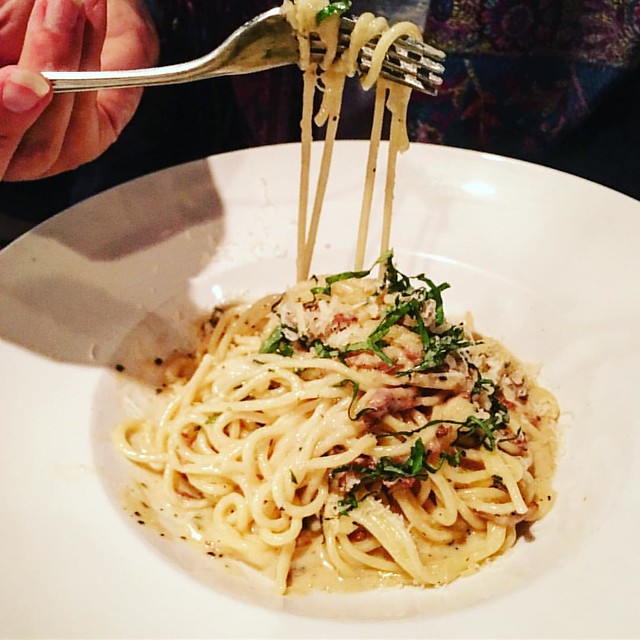Food entrepreneurs are changing the face of farming in the Comox Valley. It’s a commonplace: the Comox Valley is an agricultural hot spot on Vancouver Island. What’s often overlooked is that we’re home to a growing number of “young agrarians,” farmers with vision. One of these is Sandra McClintock.
Sandra studied agrology and came back to the family farm determined to create a career in dairy. Gary Ralston, the former agriculture consultant who played a role in many farm ventures before his untimely death in 2015, suggested Sandra try something unique: a water buffalo dairy. It was Gary’s idea. But, as so important with any innovation, it’s the person who executes, who makes the idea become a reality, that’s so important for our economies. In this case, it was Sarah. That’s why we call her a #WeAreYQQ star: she’s innovating, creating a new business and a new market, here in the Comox Valley (YQQ) region.
Although new to the Comox Valley, water buffalo dairies are part of an emerging food trend. On the epicurean side, Italian-style mozzarella and bocconcini are traditionally made with water buffalo milk. On the health side, water buffalo milk, while higher in fat, is much lower in cholesterol than cows’ milk.
When the dairy first starting producing, Natural Pastures in Courtenay was buying all the milk. With other dairies coming on stream on the Island, and with the McClintock herd having grown to over 50 head, Sandra has launched a new product: water buffalo yogurt.
Because the milk is naturally rich and white it produces an outstanding product: mild in flavour, and creamy in texture. Unlike the cheeses made from their buffalo’s milk, the yogurt is branded as McClintock’s Yogurt.
How important is the Comox Valley Farmers’ Market to McClintock’s Water Buffalo Dairy?
The Market is the number one startup incubator in the region. Sandra says it’s been extremely important to their business. This was especially the case when launching something out of the ordinary like water buffalo yogurt. “Being at the Market gave us an opportunity to let people try it and give us feedback.” And people responded extremely well. “We were expecting more resistance, but people at the Market are adventurous. They have lots of questions about the animals. It’s great to be able to talk to customers, to fill them in.”
Where to buy McClintock’s Water Buffalo Yogurt?
Besides the weekly Market, you’ll find McClintock’s Water Buffalo Yogurt at Edible Island in Courtenay, Courtenay Country Market, Natural Pastures, John’s in Comox, the Island Bison store in Black Creek, and Country Grocer outlets down-island. Transportation of local food products from the Comox Valley is an ongoing issue for all local producers, but Sandra says there is interest in several lower mainland markets.
For more information about McClintock’s Water Buffalo Yogurt see the McLintocks Farm website. Or visit the Comox Valley Farmers’ Market on Saturday’s!
Remembering that innovation happens where you are
Much of the talk about “Innovation” focuses on technology. But here in the Comox Valley, innovation is happening in many quarters that don’t see themselves in any way as “tech.” Sandra McLintock’s dairy is an example. But there are many more, and we’re featuring these stories here on our blog, and with the help of our media sponsors at Comox Valley Record, 98.9 The GOAT, and The Island Word – and wherever else we at LIFT Comox Valley can get a chance to tell the story of entrepreneurs making shift happen in our region.
The important thing to remember is that innovation happens – or can happen – where you are. One of our LIFT mentors, Jayesh Parmar, encourages Canadian entrepreneurs to “think BIGger!” Whatever you’re doing, how can you tweak it to have a bigger impact, reach a bigger market? Another mentor, Boris Mann, says that today, “every business is a tech business,” if only because we’re using marketing and sales technologies (from Facebook and Instagram to Square and Shopify and more) to make our businesses happen.
What can you do in 2017 to grow your business BIGger?
How can technology help make that happen?
If you’ve got a story, if you’ve got a business you want to grow – tell us about it. We can help make that happen. And we’re currently wanting to engage startups and entrepreneurs in the Qualicum – Comox Valley – Campbell River corridor to help grow our “startup region.” Be in touch! Check out our events (they’re fun, and they’re super useful).
hpm
@hanspetermeyer on Twitter and Instagram
December 29, 2016
Note: This post was originally produced in a different format for the Comox Valley Farmers’ Market. Please support local food entrepreneurs and food innovation in your community by supporting your local market.





